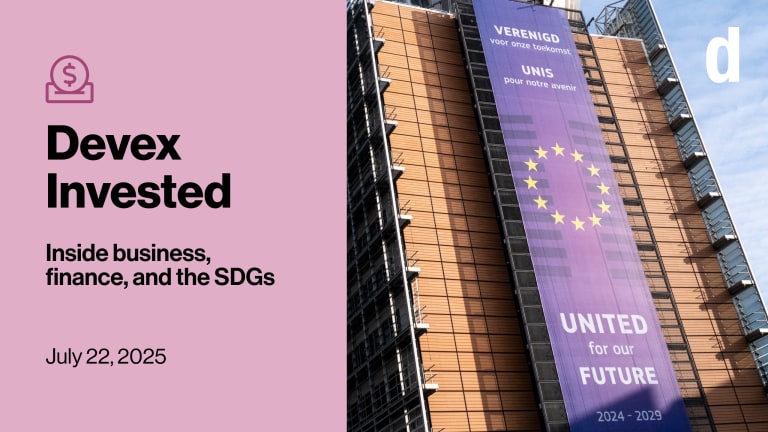
Europe is a step closer to narrowing its development focus on those countries most off-course in meeting the Millennium Development Goals. Top officials agreed this week that the European Commission should draft a list of the nations in need of “special attention.”
The agreement was hatched Monday (June 14) in Luxembourg at a meeting of the Foreign Affairs Council, which includes EU member states’ ministers of aid and foreign affairs. It was released only Wednesday, and outlines development priorities and specific actions - all with an eye on September’s United Nations-led MDG summit in New York.
Apart from focusing its aid efforts on priority nations, the ministers reaffirmed a committment to generating “more and predictable financing” for development. To ensure that the target of 0.7 percent of the gross national income is reached by 2015, the council is asking member states to share information on their planned official development assistance spending.
The bloc will also support regional trade and integration, and measures to promote private sector engagement such as innovative public-private partnerships to secure development funding. The council urged the EU to beef up the capacity of the European Investment Bank in backing development initiatives and promoting the “efficient blending of grants and loans in third countries, including in cooperation with Member States finance institutions or through facilities for development financing” - a declared goal of European Commissioner for Development Andris Piebalgs, who attended the meeting and plans to review the European Development Consensus next year.
Domestic resources of aid-recipient nations also play a crucial role in funding development schemes. The EU said it will help to build the capacities of developing nations in promoting fair, effective and efficient tax systems.
Development initiatives do not simply need more aid. Resources should also be used effectively. To pursue this, the European Commission will present a proposal to the council by 2011 to achieve a progressive synchronization of programming cycles between the EU and partner governments.
“This process should speed up progress to develop joint EU country strategy papers and multiannual programmes where appropriate,” the council concludes.
Europe intends to enforce a “holistic, rights-based approach which takes into account local contexts.” Increasing country ownership is key to that strategy, the council says, as is the “swift and adequate” implementation of World Bank voting rights reforms to benefit developing and transition countries.
The bloc vows to continue to invest in gender empowerment and education to boost development, peace and security, to foster human rights, democracy and good governance, and to address climate change and rising energy demands.
The council encourages consultation between the EU and its member governments to foster a “proactive and early use” of the Policy Coherence Development Work Program “as a tool to guide EU decision-making on the broad range of decisions that affect developing countries beyond development assistance.” The PCD work program for 2010 to 2013 supports a “strengthened focus” on trade and finance, climate change, food security, migration and security.








